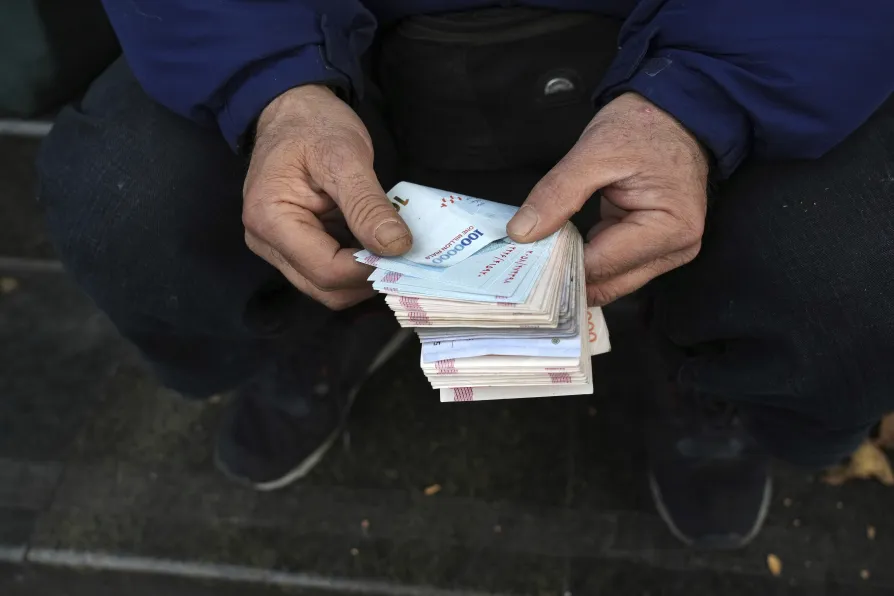
 A street money exchanger poses for a photo without showing his face as he counts Iranian banknotes at a commercial district in downtown Tehran, Iran, December 23, 2022
A street money exchanger poses for a photo without showing his face as he counts Iranian banknotes at a commercial district in downtown Tehran, Iran, December 23, 2022
IRAN’S currency fell to near-record lows today as Britain, France and Germany prepared to trigger a “snapback” mechanism reimposing UN sanctions over Tehran’s nuclear programme.
The “E3” countries were expected to formally begin the process at the UN security council today after failing to secure commitments from Iran during talks on Tuesday.
They face an October deadline before the snapback option, created under the 2015 nuclear accord, expires.
The mechanism, designed to be veto-proof, would reimpose sanctions that had been lifted under the deal, including freezing Iranian assets, halting arms sales and restricting its ballistic missile programme.
The process follows months of warnings from the E3 over Iran’s nuclear advances and its limits on inspections by the International Atomic Energy Agency (IAEA).
It also comes in the aftermath of the June war between Israel and Iran.
New York-based think tank The Soufan Centre said: “The US and its European partners see invoking the ‘snapback’ as a means of keeping Iran strategically weak and unable to reconstitute the nuclear programme damaged by the US and Israeli strikes.
“Iranian leaders perceive a sanctions snapback as a Western effort to weaken Iran’s economy indefinitely and perhaps stimulate sufficient popular unrest to unseat Iran’s regime.”
Iranian Foreign Minister Abbas Araghchi highlighted Tehran’s distrust in diplomacy with the West last week, noting that Israeli strikes began just as a sixth round of negotiations with the US was due.
“Weren’t we in talks when the war happened? So, negotiation alone cannot prevent war,” he told state media.
“Sometimes war is inevitable and diplomacy alone is not able to prevent it.”
Before the conflict, Iran was enriching uranium to 60 per cent purity — close to weapons-grade — and stockpiling enough material for several bombs.
Iran insists its programme is peaceful, while the IAEA and Western powers claim it had an active weapons project until 2003.
IAEA monitoring has been severely restricted since the US pulled out of the accord in 2018.
The E3 warned in a letter earlier this month that unless Iran offered a “satisfactory solution,” they would proceed with snapback by the end of August.
The mechanism lapses on October 18 and any new UN sanctions would likely be blocked by Russia or China.










